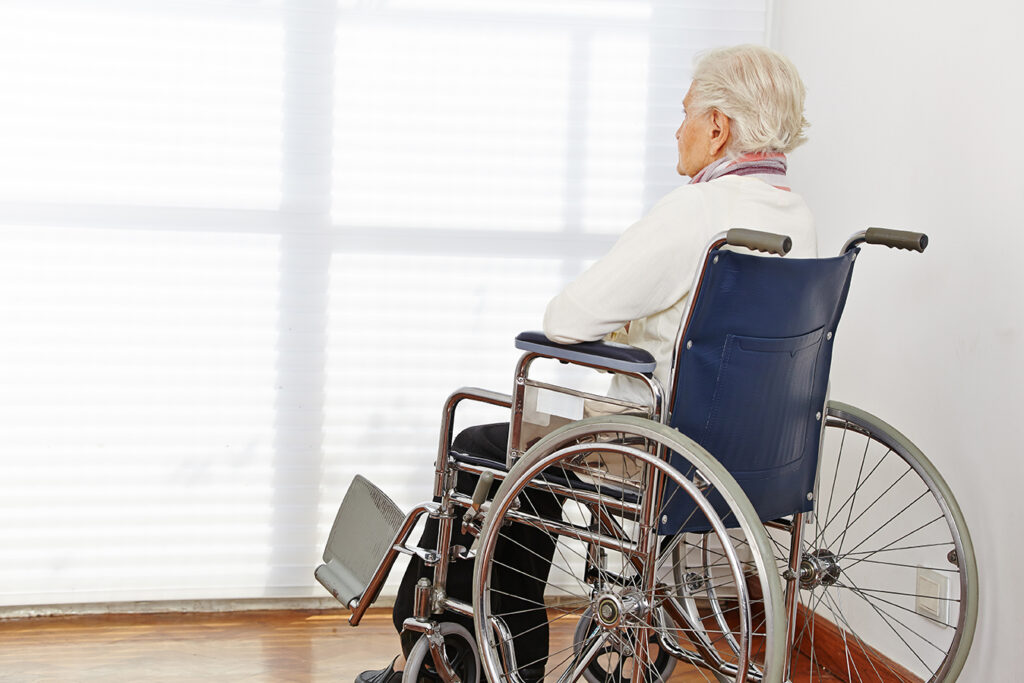The increased demand for long-term care in Washington, DC has given rise to a dark underbelly of neglect, mistreatment, and exploitation. Nursing home abuse takes on many forms, such as physical, emotional, sexual, and financial abuse, as well as neglect. It not only undermines the dignity and well-being of the elderly but also shatters the trust families place in these institutions.
Nursing home abuse lawyers play a vital role in addressing the troubling issue of elder abuse and neglect in long-term care facilities. As experienced elder abuse legal professionals, they possess the expertise, knowledge, and compassion required to effectively advocate for the rights and dignity of vulnerable elderly individuals.
Contact Us Today to Schedule
a Free Consultation
Nursing home abuse is a deeply distressing and pervasive issue that affects vulnerable elderly individuals in Washington, DC who rely on long-term care facilities to meet their daily needs. As the aging population continues to grow and the reliance on nursing homes increases, the unfortunate reality of elder abuse has become an alarming concern. In such nursing home cases, families and victims seek the assistance of skilled nursing home abuse attorneys to hold these facilities and their staff accountable for their actions.
Nursing home abuse attorneys are dedicated legal professionals who champion the rights and dignity of elderly individuals who have suffered mistreatment, neglect, or abuse in long-term care facilities. Call the the personal injury lawyers at Regan Zambri Long PLLC for a free case review. They possess extensive knowledge of the Washington, DC laws and regulations surrounding elder care, enabling them to advocate effectively on behalf of their clients.

This type of abuse involves the use of force or violence against a resident, resulting in pain, injury, or impairment. Examples include hitting, slapping, pushing, pinching, or restraining residents inappropriately.
This form of nursing home abuse involves intentionally causing emotional pain, distress, or anguish through verbal or non-verbal actions. Examples include yelling, belittling, humiliating, isolating, or ignoring the resident.
Sexual nursing home abuse in nursing homes involves any non-consensual sexual contact or activity with a resident. This can include rape, sexual assault, inappropriate touching, or forced nudity.
Financial nursing home abuse occurs when someone inappropriately uses or exploits a resident’s financial resources. Examples include theft, forgery, identity theft, or coercion to change a will or other legal documents.
Neglect is a form of abuse having to do with the failure to provide adequate nursing home care, assistance, or supervision to a nursing home resident, resulting in harm or risk of harm. Examples include failing to provide proper nutrition, hygiene, medical care, or failing to prevent falls and other accidents.
This involves the inappropriate administration of medications in the Washington, DC nursing home, such as incorrect dosages, incorrect medications, or neglecting to administer necessary medications, leading to potential harm or complications for the resident.
These painful skin lesions result from prolonged pressure on a specific body part, bedsores are often due to inadequate repositioning, poor nutrition, or lack of proper care.
Falls are a common issue in a nursing home, and inadequate supervision or failure to implement appropriate safety measures can lead to severe injuries or even death for Washington, DC nursing home residents.
Nursing home residents may suffer from malnutrition and dehydration if staff fail to provide appropriate food, water, or assistance with eating and drinking.
A lack of proper hygiene and infection control measures can spread infections among Washington, DC nursing home residents, resulting in serious health complications.
These are just a few examples of the common types of nursing home abuse cases. It is essential to be vigilant and report any signs of abuse or neglect to protect the elderly and ensure their well-being.

These attorneys have a deep understanding of Washington, DC nursing home abuse cases and the applicable laws. They can effectively investigate, gather evidence, and build a strong case on behalf of their clients.
Nursing home abuse attorneys are dedicated advocates for the rights and dignity of elderly individuals. Your attorney will work tirelessly to ensure that victims receive justice and that nursing homes are held accountable for their actions.
The process of seeking justice for nursing home abuse can be emotionally challenging for victims and their families without an attorney. An experienced attorney can provide guidance, support, and empathy throughout the legal process.
A skilled Washington, DC nursing home abuse attorney will work to obtain the maximum possible compensation for the victim, including medical expenses, pain and suffering, emotional distress, and, in some cases, punitive damages.
Victims and their families may be concerned about potential retaliation from the nursing home or its staff. An attorney can help protect their rights and ensure they are not subjected to further harm or intimidation.
By working with a nursing home abuse attorney in Washington DC, families and victims can often reach a resolution more quickly and efficiently than if they were to handle the claim on their own.
Nursing home abuse attorneys in Washington can play a vital role in ensuring that nursing homes adhere to regulations and laws, thereby preventing future instances of abuse or neglect.
Knowing that a skilled and experienced Washington, DC legal professional is handling their case can provide a sense of relief and reassurance to victims and their families, allowing them to focus on healing and recovery.
Working with a nursing home abuse attorney offers numerous benefits, including expert guidance, advocacy, emotional support, and the potential for significant compensation. By holding nursing homes accountable for their actions around Washington DC, these attorneys help in preventing future abuse and promoting a culture of responsibility and compassion in long-term care environments.
Call the Experienced Elderly Abuse Attorneys at Regan Zambri Long for a free consultation.